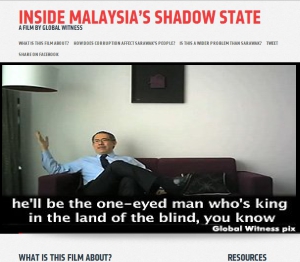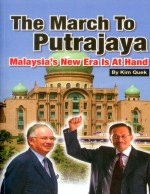 Terence Netto
Terence Netto
In a much-awaited speech on the reform of higher education in Muslim societies, Anwar Ibrahim disagreed with the popular notion among Muslims that western education is devoid of an ethical and moral dimension.
Anwar said this notion, widely disseminated in Islamic intellectual circles, has been a hindrance to the development of Muslims, particularly in the scientific and technical spheres.
“.. [T]here is a general perception among the discourse of many Muslim scholars that Western education and philosophy is secular and bereft of an ethical and moral dimension. To my mind, this is unfounded,” declared Anwar in a keynote address to a symposium organised by the International Institute of Islamic Thought (IIIT) in Washington DC on Monday.
Malaysia’s parliamentary opposition leader, highly regarded abroad than at home for his intellection, observed that the misperception of western education as ethically vacant was also shared by intellectuals in the west.
He said seminal western thinkers like John Locke and Adam Smith were concerned to found their philosophies on a moral core, but that Smith, in particular, “the icon of ‘capitalism’, has been seriously misread.”

Anwar argued that the “moral sentiments” that were an integral part of Smith’s economic propositions were “not at loggerheads with Islamic percepts”.
He likened Smith’s concern for morality in economics with Islamic thinker Ismail Faruqi’s conception of a good economy as the expression of Islam’s spirituality.
To Faruqi, “the economy of the ummah and its good health are the essence of Islam just as Islam’s spirituality is inexistent without just economic action.”
Anwar held that the Islamic percept ‘inna al din al mu’amalah’ (religion is indeed Man’s treatment of his fellows) made it imperative for Man to “order human life so as to make it actualise the pattern intended for it by its Creator.”
He said Muslim societies would not be productive if it they do not “emerge from the exercise of finding fault” with Western systems.
Quoting from a host of Islamic philosophers ranging from the 11th century’s Al Ghazali to the 20th century’s Naguib Al-Attas, Anwar made the point that education in Muslim societies must “proceed on the basis of rationality.”
He defined rationalism the way Faruqi conceived it as not “the priority of reason over revelation but the rejection of any ultimate contradiction between them.”
Anwar acknowledged that the rationalist strain in the interpretive process (ijtihad) left its exponents vulnerable to the charge of espousing secular thinking.
The pursuit of knowledge
Noting that from the time of Muhammad Abduh, the 19th century Egyptian thinker famed for pushing for the modernisation of Islamic education, Anwar said Islamic modernists had to combat the suspicion of attempting to “introduce secularism through the back door of ijtihad” but that this allegation was misconceived.
“On the contrary, what Abduh did was to subject the moral and epistemological premises of secular modernity to scrutiny and he came to the conclusion that Islam’s modernity was both non-Western and non-secular,” said Anwar.
In his oration, Anwar did not explain how Islam’s modernity could be both non-Western and non-secular, neither did he expatiate on “Islamisation of knowledge” which he said would immunise Muslims from the excesses of the liberalist mind-set that would lead to the placing of reason above revelation.
He seemed surer, though, of his thesis that current approaches to the Islamisation of knowledge in Muslim societies tended to place a preponderance of focus on the social sciences, whereas he said it was on the technological and scientific disciplines that Muslims were lagging behind non-Muslim communities and where the quest for knowledge therefore needed greater emphasis.
Anwar reminded that the ‘Bayt-a-Hikmahof’ (Golden Age of Islam) gave birth to not only philosophers but also to eminent scientists.
He attributed this to the holistic pursuit of knowledge that he credited to the Quranic injunction on the use of the intellectual faculty.
He said the “Quran enjoins the use of reason as provided by the senses, and the truth grounded on revelation that led him to concur with Faruqi that Islam was ‘the religion of world-affirmation par excellence’.”






















It’s rather entry stage in terms of black colored metal without reserving unyielding enthusiasm to match another reason. Phantom’s cries tends to be standard in the type, with most space given to the cruelty.
Comment by metal — December 19, 2013 @ 1:18 AM |
Check out who are the immoral baby dumpers, then you talk about other immoral countries, western or otherwise.
Comment by Sharpshooter — December 12, 2013 @ 8:39 PM |